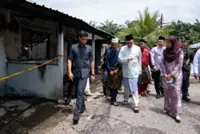In Malaysia's evolving science landscape, young women are trailblazing and shaping the nation’s future, and one such individual is Dr Kong Xin Ying, a shining example of passion and innovation.
Born in Johor, Kong’s love for science began with childhood curiosity, taking apart toys and clocks to understand how they worked.





